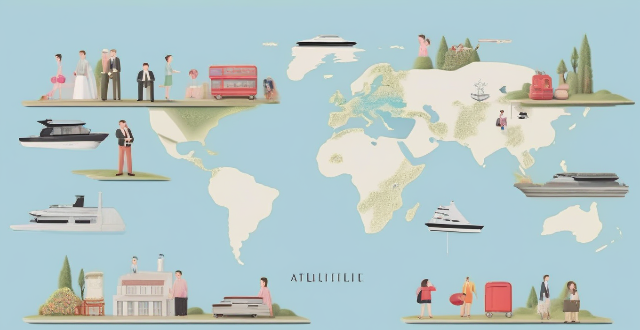Sports tourism, involving travel for sports events, significantly impacts the global tourism industry. It not only boosts the economy through increased revenue and job opportunities but also enhances international relations by promoting cultural exchange and diplomatic engagement. Sports events serve as platforms for peaceful competition, showcasing a country's soft power and fostering international collaboration.

Impact of Sports Tourism on International Relations and Economy
Introduction
Sports tourism refers to the travel of individuals or groups to participate in or watch sports events. It has become a significant component of the global tourism industry, with millions of people traveling each year to attend sporting events such as the Olympics, World Cup, and various international championships. The impact of sports tourism extends beyond just the economic benefits for host cities and countries; it also plays a crucial role in enhancing international relations and fostering cultural exchange.
Economic Impact
1. Increased Revenue: Hosting major sports events can generate substantial revenue from ticket sales, merchandise, and tourism-related activities. This revenue can contribute significantly to the local economy.
2. Job Creation: Preparations for sports events often require construction and infrastructure development, creating temporary job opportunities. Additionally, during the event, there is an increased demand for hospitality, transportation, and retail services, further boosting employment.
3. Infrastructure Development: Sports tourism can lead to improvements in transportation networks, accommodation facilities, and public services, benefiting both tourists and local residents in the long term.
4. Branding and Marketing: Successful sports events can enhance a country's brand image, attracting more tourists and investors over time.
5. Legacy Effects: Some sports venues and infrastructure built for major events can be repurposed for community use afterward, providing lasting value.
International Relations Impact
1. Diplomatic Platform: Sports events serve as a platform for diplomatic engagement, where countries can strengthen ties through friendly competition and collaboration.
2. Cultural Exchange: Spectators and athletes from different nations come together, promoting cross-cultural understanding and appreciation.
3. Soft Power: Sports tourism can be used as a tool of soft power, showcasing a country's culture, values, and achievements on the global stage.
4. Peaceful Competition: Sporting events are often seen as a way to promote peace and unity among nations, as they provide an avenue for peaceful competition and camaraderie.
5. International Collaboration: The organization of major sports events requires cooperation between different countries, fostering international partnerships and collaboration.
Conclusion
The impact of sports tourism on international relations and the economy is multifaceted and far-reaching. While it undoubtedly brings economic benefits through increased revenue and job creation, its influence on international diplomacy should not be underestimated. By promoting cultural exchange, enhancing soft power, and providing a platform for peaceful competition, sports tourism contributes to building bridges between nations and fostering a sense of global community.